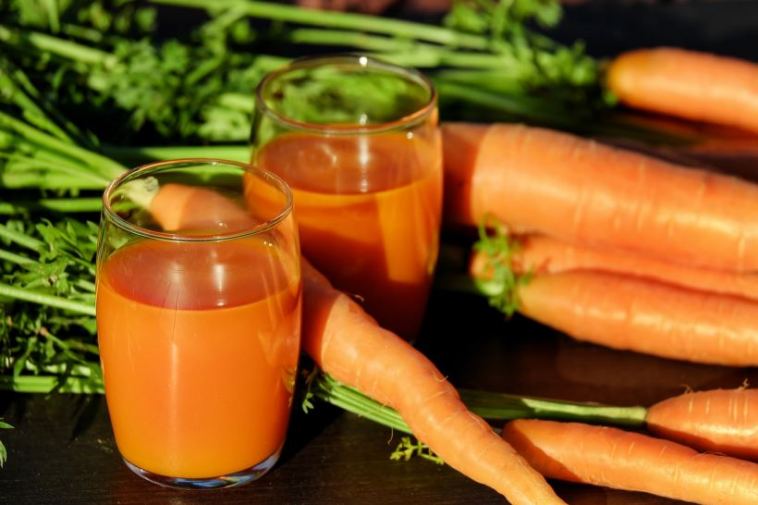- Like
- SHARE
- Digg
- Del
- Tumblr
- VKontakte
- Flattr
- Buffer
- Love This
- Save
- Odnoklassniki
- Meneame
- Blogger
- Amazon
- Yahoo Mail
- Gmail
- AOL
- Newsvine
- HackerNews
- Evernote
- MySpace
- Mail.ru
- Viadeo
- Line
- Comments
- Yummly
- SMS
- Viber
- Telegram
- JOIN
- Skype
- Facebook Messenger
- Kakao
- LiveJournal
- Yammer
- Edgar
- Fintel
- Mix
- Instapaper
- Copy Link
Introduction
Many experts agree that juicing is no healthier than consuming whole fruits and vegetables, though, other experts disagree due to various reasons, which we’re going to take a look at today.
But in general, juice contains the majority of the vitamins, minerals, plant chemicals, and phytonutrients found throughout the fruit or vegetable, as well as a variety of other vitamins and minerals.
Some health experts claim that juices are better than eating whole fruits and vegetables because the body can better absorb the nutrients, they say. Their argument is that consuming just the juice doesn’t tax the digestive system as much. This is because the digestion of the fiber requires additional energy.
However, when juicing, healthy fiber is also lost, so many say juicing is not as good for you as eating whole fruits or vegetables. Confusing, right? So, which is better?
In all honesty, it really depends on your preference. Both juicing and consuming whole fruits and vegetables is a healthy lifestyle habit that you should make part of your day to day routine.
But let’s dig a little deeper…
Health Benefits of Fruit and Fruit Juices
A fruit diet is good for the heart and can reduce the risk of various degenerative diseases, according to the American Heart Association (AHA).
Fruit juice is a convenient way to squeeze more nutrients into your busy schedule, but it only partially meets the USDA’s dietary recommendations.
Fresh fruit juice is essentially a concentrated extract rich in certain nutrients and lacking fiber. Eating whole fruits provides more fiber than juices would otherwise do, according to the US Food and Drug Administration. The primary advantage of juicing is that the fruits you eat can be quickly consumed.
Juice advocates often claim that your body absorbs nutrients better and your digestive system is not as stressed. Mayo Clinic registered dietitian Jennifer Nelson, however, says there is no scientific evidence to support this claim.
A Look at the Juicing Process
Juicing machines simply extract the juice from fruits and vegetables, leaving the majority of the pulp behind. If you want, you can take advantage of the benefits of the juice (instant energy, convenience, etc.) but eat the flesh leftover from the juicing machine to get the benefits of the fiber at another time.
Usually, the amount of fiber in your glass of juice is tiny after running it through your juicer, less than a gram, compared to what went into making the juice in the first place. There is always some flesh left in the liquid but many juicers do a better job at extraction, so it will ultimately depend on your juicer when it comes to how much pulp remains in the final extracted product.
Juicing benefits are many, from instant energy to convenience, since you can extract it, bottle it and take it with you on the go. It is also easier to drink the equivalent of many pieces of fruit in a few seconds than if consuming the same amount. This allows you to quickly consume key vitamins and minerals found in the fruits.
Although juice may not be as filling as solid foods, eating fruit and vegetables certainly has health benefits that are better for you than not eating them at all. Juicing, however, can be a quick, convenient, and tasty way to the health benefits of fruit and vegetables.
Juice Recipe Ideas
Many juice recipes are available online at Juice Buff and you can create your own combinations of fruits and vegetables to your taste. There is no doubt, however, that extracting juice is a great way to extract juice from fruits and vegetables. Even if you don’t eat fresh fruit or vegetables, juice can still be a fun way to incorporate it into your diet and try to eat it.
Mixing the edible parts of the fruit creates a drink that contains more healthy phytonutrients and fiber. Fruits are not only refreshing in taste, but most varieties are also rich in vitamins, minerals, antioxidants, and other important nutrients such as calcium, magnesium, phosphorus, potassium, iron, calcium, and zinc.
Conclusion
If you don’t regularly eat a large variety of fruits and vegetables, juicing may be the best way to get the nutrients your body needs. Juicing allows you to easily benefit from many of the health benefits fruit offers. Juicing is super convenient and juice tastes great to boot.
Juicing also has some downsides, though. For example, it is not always as ideal if you are trying to lose weight. It’s easy to get carried away with sugar and the subsequent calories when juicing. Juice goes down super easy and tastes great, and no fiber means it won’t fill you up the same as consuming whole fruits and vegetables.
However, at the end of the day, whether you go for whole fruits and vegetables or juicing, it’s going to benefit your overall health. Fruit offers many important vitamins and minerals which will keep your immune system strong and your body energized.
Which do you prefer, juicing or whole fruits and vegetables? Let me know in the comments below…
About Theresa Duncan
Originally from Detroit, MI, Theresa has been offering health and fitness advice for the last 30 years while working as an engineer. She decided to turn her passion into a profession, and finds nothing more satisfying than helping others reach their health and fitness goals.

